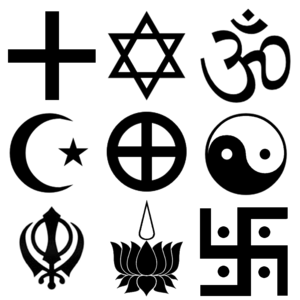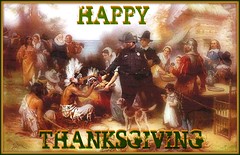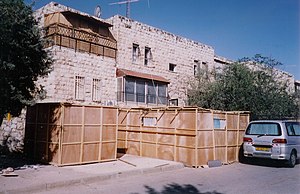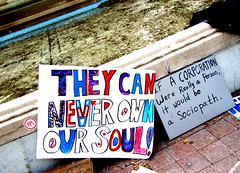 |
| Symbols of various faiths (Photo credit: Wikipedia) |
We are posting this for all those who might be interested in joining us but have not quite felt confident about it.
1. What does an Occupy chaplain do?
We began what was then known as the Interfaith Guild of Chaplains (IGC) modelled after Occupy
Boston's Protest Chaplains. By the second week of Occupation, the Protest Chaplains had several autonomous chapters in major cities, including
Toronto, New York, and
Washington, D.C. We were somewhat different from the Protest Chaplains in that (1) we emphasized the
interfaith -- not just
Christians and some "token Jews", but encompassing the diverse religious landscape, and actively reached out to many non-Christian traditions as well as Christians of many denominations; and (2) we focused on providing spiritual and
pastoral support to the Occupiers rather than protesting.
Today, we have somewhat different needs from what we had back when we were at the parks. However, we try to be good listeners (rather than good preachers) and provide both spiritual support and advocacy from a faith-based point of view.
2. Do I have to be an ordained minister or be certified in chaplaincy to join the Interfaith Solidarity?
This is perhaps the most wide-spread misconception about us.
Even though it is helpful if you have a past or current experience in church or faith-based ministries, that is not always a requirement.
While we do not ordain people, we do not require our members to be ordained by any church. In fact there are many spiritual traditions in which concepts of ordination and ministers, do not even exist. So having such a requirement can be exclusionary. If you have experiences in leading a spiritual community, teaching in churches, have attended a seminary or divinity school, etc., you are encouraged to become part of the Chaplains' Guild. We cherish diversity and would like us to be reflective of the diverse world we are in.
Aside from chaplaincy, Interfaith Solidarity has many other areas everyone can join -- for example, the newly organizing Interfaith Solidarity Action Team (ISAT), event planning, and other outreach activities.
Therefore everyone is welcome at Interfaith Solidarity.
3. I am not affiliated with any organized religion.
See above. The recent study shows that the "Nones" now comprise the second largest "religious group" in the U.S. We are also aware of Portland and Oregon's reputation as the least unchurched area in America. If you have a passion for social justice where it intersects with your spiritual life, you are more than welcome.
4. Is Interfaith Solidarity just for Christians?
No.
5. I am an Evangelical Christian and sharing the Gospel is an integral part of my faith. Can I join the Chaplains' Guild?
As a chaplain working in an interfaith setting, your work will be two-fold: (1) to provide spiritual support to anyone regardless of their spiritual or religious orientation, without proselytizing; (2) to provide spiritual support and religious services specific to your religious tradition, when requested by (or when you see a need within the community) those who desire them.
You are welcome to start, for example, a
Bible study group geared towards
Evangelical Christians within the community; however it would be inappropriate to go out and proselytize others.
6. I cannot regularly attend meetings or be part of the occupation, march, etc., because of my age/disability/location.
There are many tasks that can be done off-site. Also, we are looking for people who can provide presences in smaller towns with Occupy or similar communities, such as Gresham, Bend, and Corvallis.
7. How do I join?
First read the documents listed on the right column of this webpage, specifically, "Re-envisioning Document," "Online Consensus Procedure," "Safety Protocol," and "Basic Information and Statement of Purpose."
Then send an email to
******@*********** (click on the link to reveal the address).




























